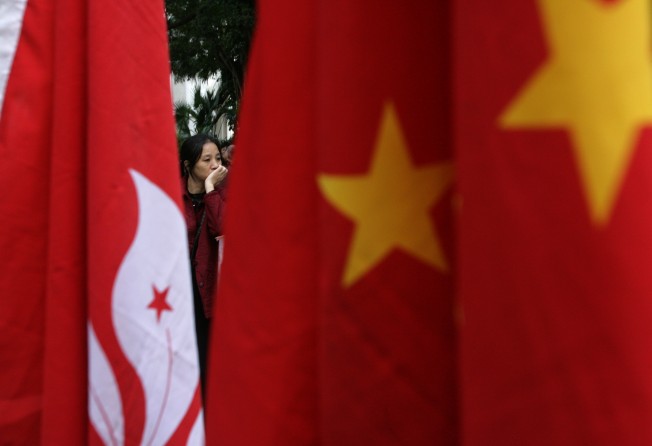No reason for foreign policy fears if Hong Kong joins Asian Infrastructure Investment Bank
Holden Chow says court ruling gives the SAR a clear path to follow

When China announced its "one belt, one road" strategy, people started to ponder how Hong Kong could take part and what role it could play in the course of implementing such a landmark national policy. As many have suggested, Hong Kong, as a leading financial centre with the edge of the rule of law, ought to join the Asian Infrastructure Investment Bank because our knowledge and financial expertise would certainly be conducive to its development.
According to the Basic Law, the SAR is entitled to participate in foreign affairs (including joining international institutions like the AIIB) under certain conditions. But given the tensions between pro-establishment and pan-democrat camps due to the wide difference in understanding of "one country, two systems", one might anticipate potential disputes over China's foreign policy in the course of Hong Kong's disposal of external affairs, and while carrying out duties in the infrastructure bank.
Fortunately, the Court of Final Appeal handed down a landmark judgment in 2011 in a case involving the Democratic Republic of Congo, which has far-reaching implications.
The core legal dispute can be summarised as follows: a foreign sovereign state enjoys immunity from being sued in other jurisdictions. However, this does not extend to commercial transactions by the foreign state and such restricted immunity is widely adopted by countries practising the common law system, including Britain and the US.
China, on the other hand, adopts an absolute immunity principle, to the effect that as sovereign state, it can never face legal proceedings by any entities in other jurisdictions, even in cases involving purely commercial transactions.
This is more about diplomacy and China, in return, offers absolute immunity to other countries, meaning that any disputes would be resolved by diplomatic means instead.
The question before the court in the Congo case was whether the Hong Kong SAR should follow the common law practice of restrictive immunity, which was in place before the handover, or comply with the absolute immunity principle adopted by China.
A majority of Court of Final Appeal judges ruled that the absolute immunity principle prevailed. Due to the fact Hong Kong is an inalienable part of China, it cannot have a different foreign policy than China.
The court also referred to the decision by the National People's Congress Standing Committee according to Article 160 of the Basic Law in 1997, which stipulated that in any conflict between local laws concerning foreign affairs and national laws applicable in Hong Kong, national laws would prevail. Furthermore, a letter from the Office of the Commissioner of the Ministry of Foreign Affairs, produced as evidence, explained that if Hong Kong were to adopt the restrictive immunity principle, serious doubt would be cast over China's consistency in practising the absolute immunity principle. As a result, China's relationship and diplomatic ties with foreign nations would be affected.
The Court of Final Appeal finally made a provisional judgment, seeking interpretation from the National People's Congress Standing Committee to confirm its view.
The case has far-reaching implications for Hong Kong's future.
The judgment conveys a proper understanding of "one country, two systems" and rebuts the argument by pan-democrats who seek to deny the "one country" element and so-called "absolute" autonomy, as if Beijing has no rights over any SAR affairs.
More importantly, if there were any legal dispute over Hong Kong's role within the Asian Infrastructure Investment Bank, the Congo case offers a perfect answer. There is one further upside; the case also shows that Hong Kong would not depart from China's foreign policy amid disposal of any AIIB affairs. People need not be concerned about any potential inconsistency with China's foreign policy while Hong Kong performed its duties in the AIIB.
Holden Chow is DAB vice-chairman